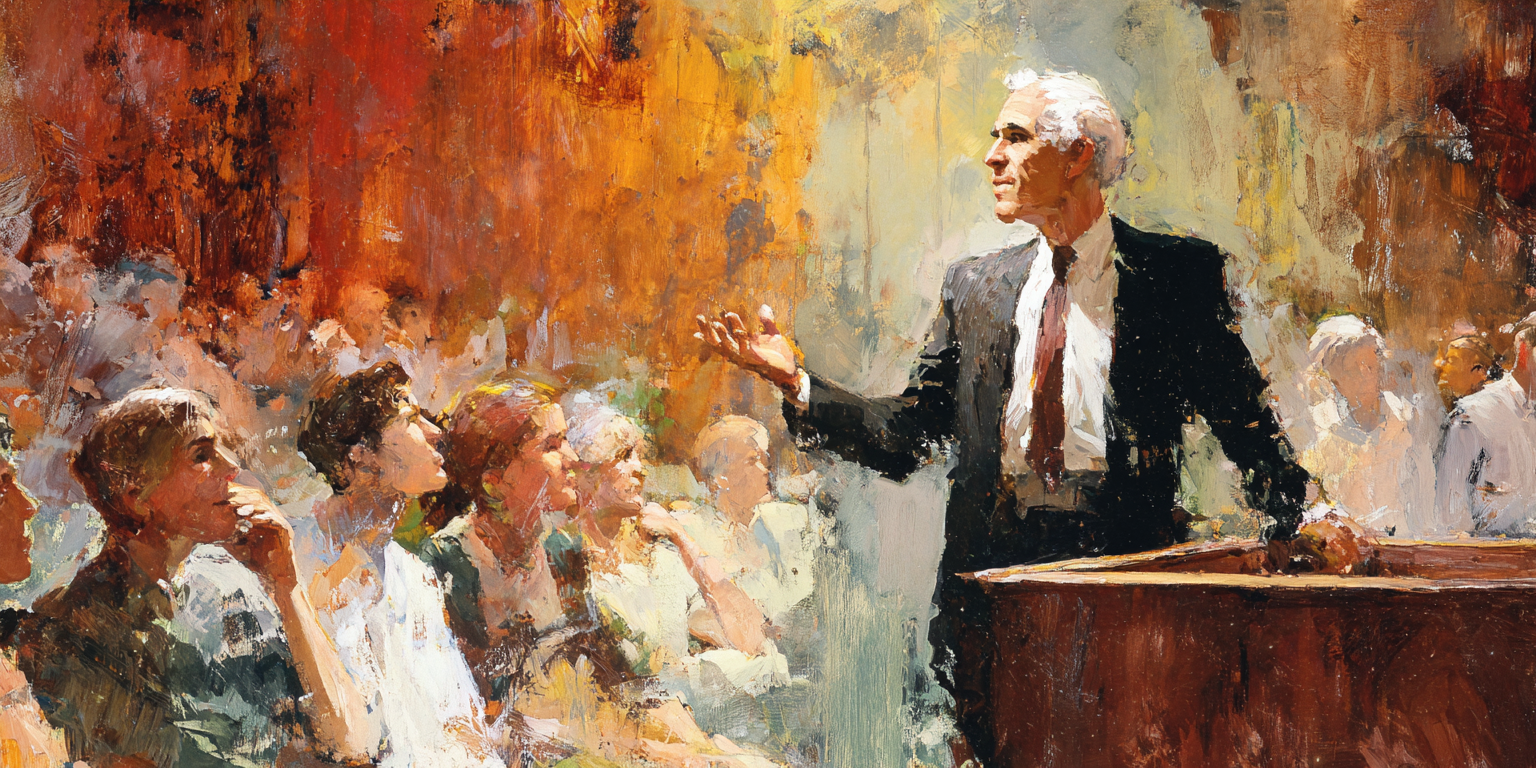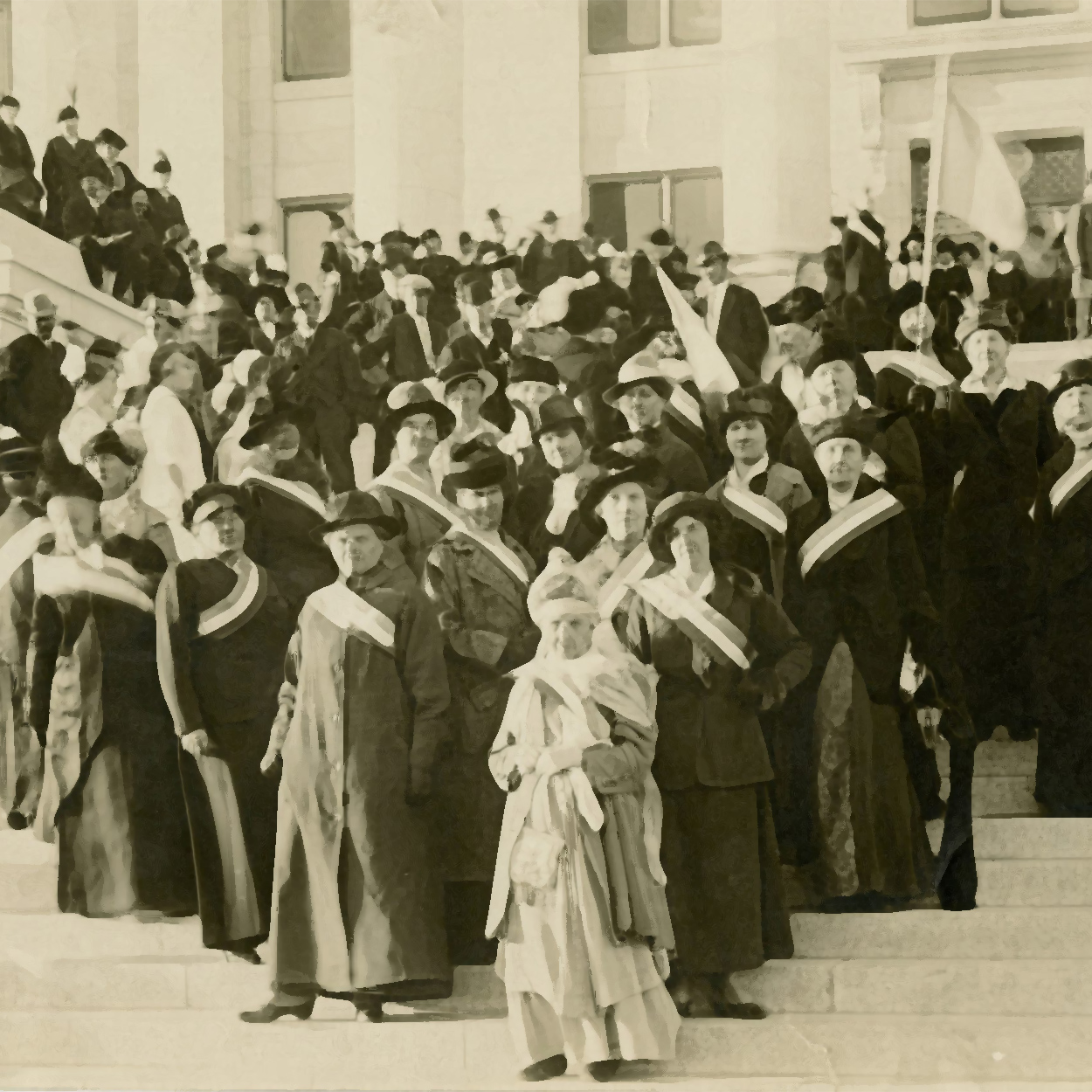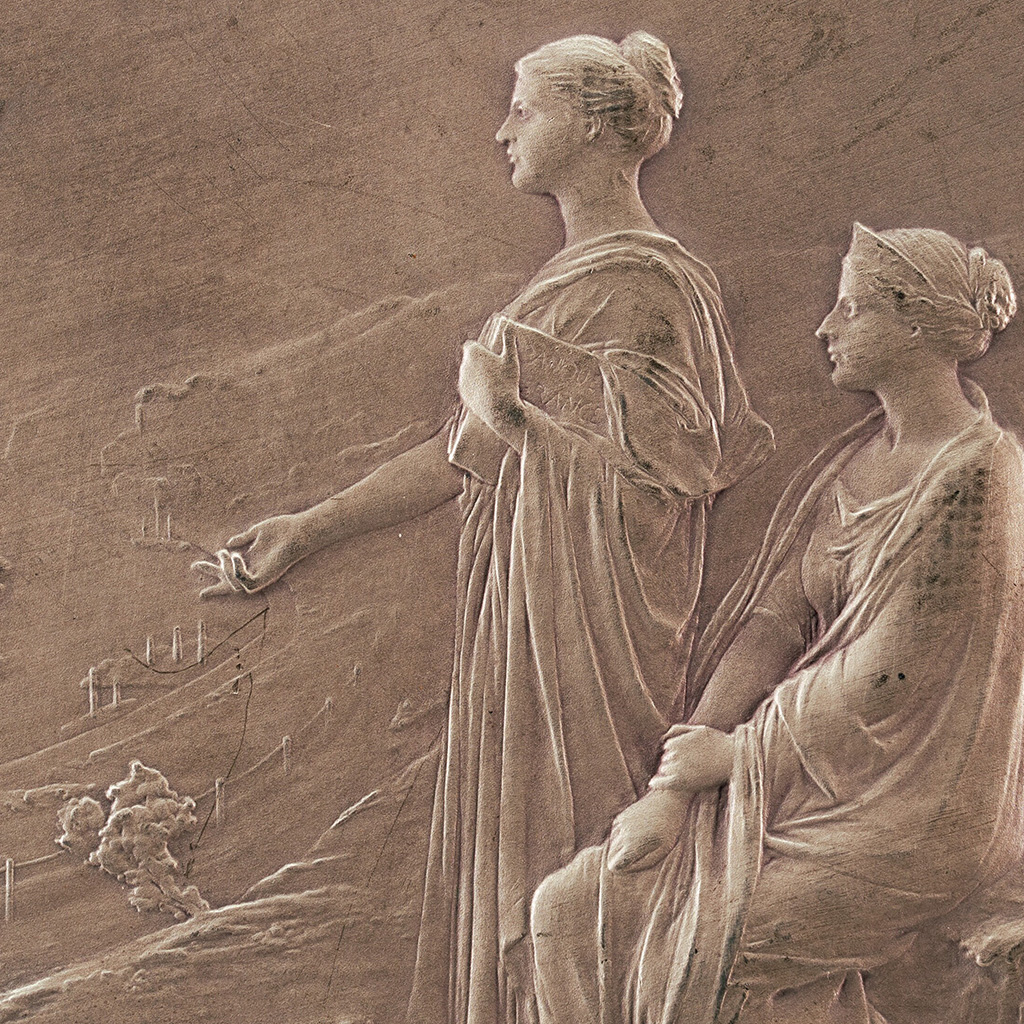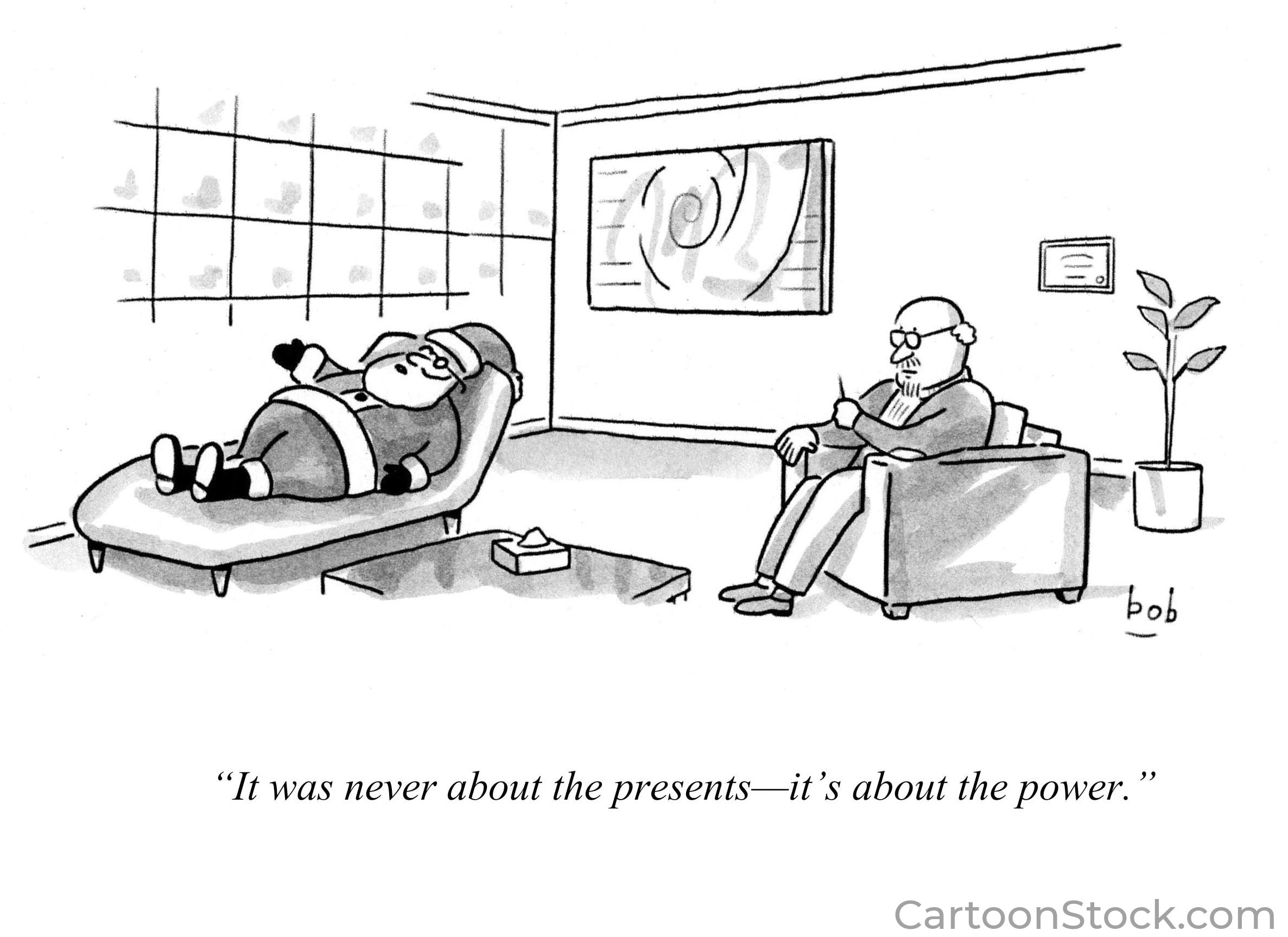In 1934, renowned German psychologist Wolfgang Köhler delivered a series of lectures at Harvard. Still in the shadow of the devastation of WWI, many were grappling over how such brutality could happen despite so much modern scientific advancement. Why hadn’t such enlightened progress been enough to stop 20 million deaths?
Similar questions are being asked by many today, who witness the technological marvels around us, alongside the brutality of the Russian aggression in Ukraine, the mass shootings in America, the mental health crisis, etc. With all we know scientifically, technologically, and medically, we really can’t figure these things out?
The answer is pretty obviously no. But why not? Some might say, well, we just haven’t made enough scientific and technological progress. Just around the corner, surely the answers will come. We just need more of what we’ve already been doing—more data, more innovation. Maybe AI will finally help unravel our thorniest problems? Everyone needs meaning.
From within these silos, questions of the soul can seem almost “obnoxious.” Whether from disdain or indifference, weighty questions often go unanswered by teachers to whom students look for guidance.
Since everyone needs meaning, searchers inevitably absorb answers from those more willing to go there—taking their cues, for example, from TikTok gurus all too happy to offer life direction. After all, how could this charismatic persona not be credible if they’ve got 100K followers?!
A wisdom greater than TikTok? This is the backdrop behind a spring conference held at Brigham Young University on “Embracing the Divine Purpose in Education and Scholarship.” Rather than ceding the ground to the Influencer Class when it comes to questions of life, love, and identity—what if qualified teachers felt more willing to lean into the bigger questions?
Where such guidance takes place on campus, unfortunately, the advice often parallels what students are hearing on social media—with professors too often mirroring with their gravitas merely what’s trendy rather than providing a rich alternative perspective.
Herein lies the great opportunity. Amidst the cacophony of popular wisdom, believing teachers have an opportunity to shape young minds in a better direction at every level of education.
Expanding the disciplines. President Spencer Kimball famously encouraged teachers to keep their various subject matters “bathed in the light and color of the restored gospel.” This was a reiteration of earlier counsel from Brigham Young, who remarked to early leaders of the school bearing his name, “Remember to not teach even the alphabet or the multiplication tables without the Spirit of God.”
For some, this may mean little more than an extra prayer or spiritual thought. But as conference organizer Richard Williams reminded attendees, something happens to anything that gets bathed—“stuff washes off, and it comes out different than when it went in—clean, with some things shorn off.”
What could all the various fields of study become when they are “bathed” in sacred truths?
The rippling effect of higher truth. Perhaps no one did more to elucidate this vision than Elder Neal Maxwell. Citing the “embarrassment of riches” available in the fullness of the gospel, he cautioned students of the human sciences in 1976 to avoid becoming “at every point indistinguishable from those whose approach is purely secular.”
This can happen unawares, Williams noted, by fixating on narrow truths such as “a human being is 60% water … the brain is always involved in our actions … human sexuality is a natural biological process we share with other mammals … culture is the source of identity, values and ideas”—without asking, “and therefore?”
Too often, such truths are taken to be the full story—with little examination going into where an idea comes from and where it takes people. If we did more of that, Williams added, we might appreciate how “the restored gospel can, in many cases, provide context and alternative possibilities for understanding and assessing” popular claims. To wit:
- Rather than “couples need to learn how to manage conflict,” Jason Carroll described helping students connect empirical findings to doctrine—for instance, seeing how “disciple marriages are committed to equal partnership.”
- Edwin Gantt spoke of therapists-in-training learning they are “not the healer” but that they must work to “create a space where the Lord can heal.”
What could disciple scholarship like this mean for academic disciplines? For instance, “how many disciplines could use a refresher course on human agency,” especially since human behavior is so often portrayed as entirely determined? What comfort could people take from truths about the nature of marriage and family, true human identity, or the intrinsic value of children?
People who don’t understand will say, as Isaiah of old predicted, “Why are you turning things upside down?” Yet sometimes, that’s what we need to do.
Free to take all truth seriously. Of course, it’s precisely these potential secular/sacred conflicts that some point towards as constraining teaching and research at religiously-oriented schools. Yet family science professor Jason Carrol, associate director at the Wheatley Institute, remarked, “I’m so grateful to be at a university where we have the academic freedom to draw upon these truths as we do!” Professor Lane Fisher likewise added that he was “forever grateful for the academic freedom I experience at BYU.” Believing teachers have an opportunity to shape young minds.
That’s when you will have a choice, he continued. You can either say, “You’re right, I shouldn’t have brought my personal religious beliefs into this.” Or, we can start a dialogue, “Help me understand your perspective a little more?”
Dialogue doesn’t require division. Some fear that standing up for these other perspectives necessarily means “driving wedges.” Professor Stephen Yanchar noted raising honest questions via critical thinking “has a reputation of being an attack.” But he insisted, this can all be “loving, kind and gentle—a part of relationship building.”
Other speakers concurred, insisting we can discuss disagreements with charity. “But the most charitable thing we can do is tell the truth,” emphasized Rich Williams.
The fact that profound disagreements have become so scary at universities—the very place dedicated to hashing out different perspectives in a search for truth—is symptomatic of toxic polarization taking over many institutions. But again, perhaps this highlights our own unique opportunity at BYU to model a different way, given the relative political balance that exists there.
“Yes, people will disagree … and we can talk. But at least we’ll be having the discussions,” said Williams, “What could be more important than having these conversations with fellow believers in a spirit of respect and love?”
Carroll noted that some fear such bridge building is a “one-way ticket to banishment in the academic world” wherein they won’t be taken seriously anymore and instead will be seen as speaking “just another language for Sunday school.”
“Those who fear” this kind of searching dialogue, Yanchar suggested, “have overstated its dangers.”
Expanded ways of knowing. Even so, much of this may seem strange to those convinced that “only knowledge gathered through careful application of certifiably natural science methods can count as valid and valuable knowledge.” This kind of “zealous metaphysical commitment” and associated “orthodoxy in methodology and thought” can make those drawing on more ancient and transcendent ways of knowing seem backward.
Lane Fisher described fellow classmates in graduate school as “disparaging my use of scriptures as a base for exploration.” But rather than merely asking, “What do the data say (as though data speak with a voice of their own),” he admitted his first natural impulse continued to be, “What do the scriptures and prophets say.”
It’s certainly more comfortable for many to suggest that truth is entirely dependent on context and circumstance. But “What do you need a Savior for if relativism is true?” remarked Williams. In that case, all we need is “an apology from God for making the world such a complex place and sticking us in it.”
For those courageous scholars willing to persist, Elder Maxwell predicted that “some of the insights and methodologies of able orthodox Latter-day Saint behavioral scientists will exert an increasing gravitational pull on some of our thoughtful nonmember colleagues in the years ahead.”
Dr. Jason Carroll described receiving an award for theoretical contributions” in his field – and then with emotion in his voice, describing the true “origin of those ideas” being Elder Jeffrey Holland, who expanded his vision as a young man through his talk “Of Souls, Symbols, and Sacraments.”
These truths, he explained, shaped how his research team thought, how they measured, researched, and analyzed.
None of this means believing researchers aren’t willing to document unflattering truth. Dr. Justin Dyer described the moment he was about to press the button that would finish his statistical analysis of suicide data among sexual minorities in Utah. “There is no turning back,” he said— “and I will need to share whatever I find.”
Yet it wasn’t scriptural truths his findings contradicted, but rather secular narratives of religiosity as suicide-inducing. Dyer went on to review clear evidence repeatedly confirming that “a Latter-day Saint home in Utah is the safest place, regardless of sexual orientation.”
Disciple scholarship can, in this way, provide a second witness giving people confidence in revealed truth. Apostle Orson Hyde attested in 1841 that the restored gospel “gives birth to a new era and lays the foundation for the renovation of the moral world.”
That renovation is the great “project of the latter days,” according to Williams. And it’s something we can all be engaged in, both “professionally and personally.”
If that exciting prospect is real, why would we spend time with anything else?












